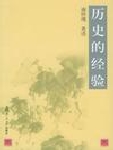Chapter 1 foreword
History is originally a record of people and things experience, in other words, recording the experience of people and things in the past dynasties becomes history.There are two directions in reading history:
One is to look at history from the standpoint of later generations—another era, another social type, and another way of life, starting from one’s own subjective habits, and claiming to be objective, and then organize the personnel and affairs of that historical era ——Politics, economy, society, education, military, literature, art, etc., comment on it, praise it, or ridicule it from different angles.Although this kind of research is called objective criticism, in fact, it always has subjective prejudices, but it cannot be said that it is not history.
The second is to extract lessons from historical personnel activities, learn from the experience of the ancients in life and affairs, and use it as a reference for oneself, and even to imitate judges and imitate it.Since the Song Dynasty in China, a very famous historical masterpiece was written by Mr. Sima Guang.As the name suggests, Mr. Sima edited and edited the direction of this history book, the focus of which is to face the emperors—leaders and leading groups as a compulsory reference book for political education.The meaning of the so-called "Zizhi" is a relatively modest term.Funding means funding—helping.Governance is politics.Taken together, it is a historical experience that uses the materials of the success and failure of ancient history to help you embark on the path of virtuous politics and Qingming politics.Therefore, when talking and laughing with friends, what do you like to read the most?Do you want to be a good emperor, or an upright minister and famous minister?Of course, jokes are jokes, in fact, this is such a historical book.
When I talked about historical experience, it was between the spring and summer of 1975, by chance, on a whim, I believe.Open the river, without any purpose and without order, and casually talk to ordinary interested friends in "Henglu".It does not discuss history from an academic standpoint, let alone learning.It is equivalent to the fallen scholar in Sanjia Village in the ancient agricultural society, the poor and poor old pedant, who gave lectures and novels such as "Fengshen Bang" under the melon shed and bean stand, and won the popular understanding.Unexpectedly, because of stopping the dagger, it aroused the interest of many readers, and prompted the Old Ancient Culture Publishing Company to collect some of the published speeches, arrange and print them. On the contrary, they felt that there was a crime of deceiving the world and stealing their names. Known under the name, Long Zhun's army also wandered. It was wrong to travel to Tibet for half a lifetime, how can we talk about soldiers on the altar."I should repent.
1985 Duanyang Nan Huaijin's Self-narrative

